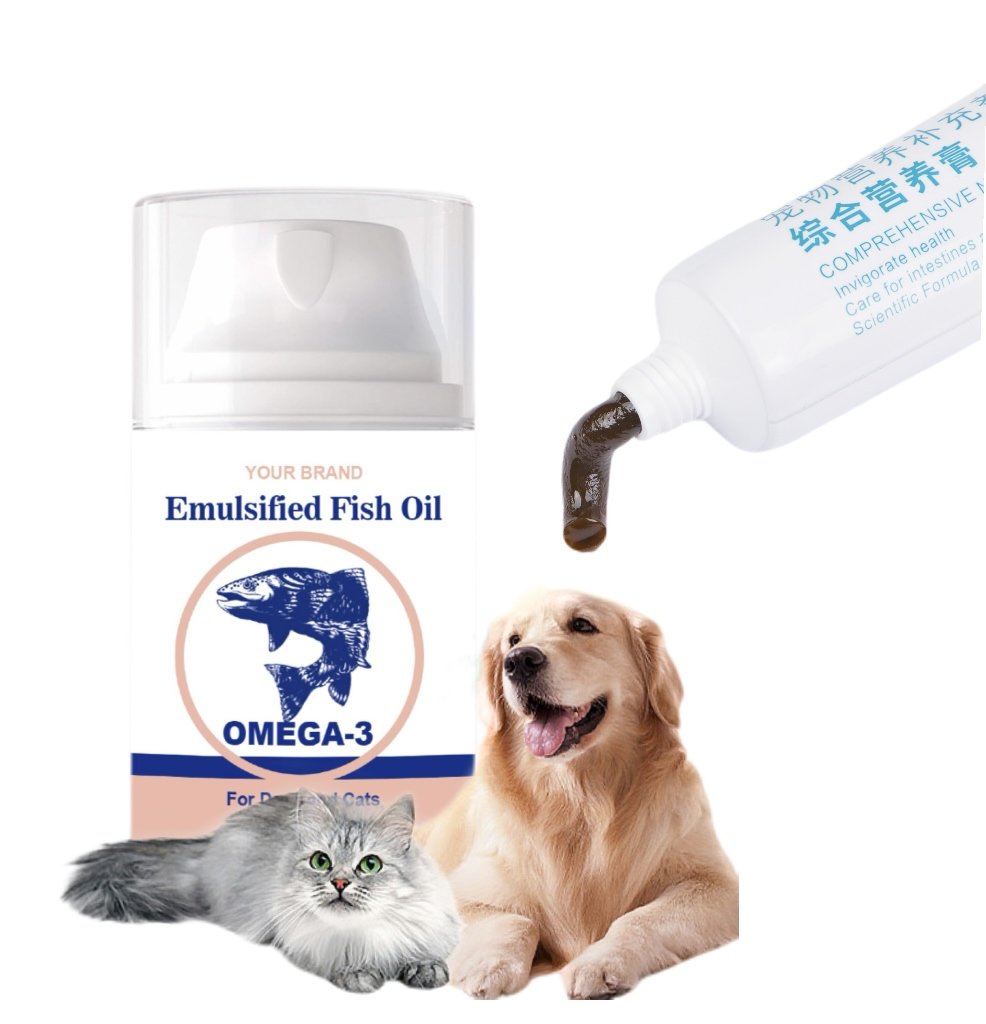
Omega-3 fatty acids are essential nutrients that play a vital role in maintaining the health and well-being of pets. These powerful compounds support joint health, enhance skin and coat conditions, and even promote cognitive and heart function. For dogs and cats, including Omega-3 fatty acids in their diet can make a significant difference in their overall quality of life.
Discover how Omega-3 fatty acids can transform your pet’s health and why they should be an essential part of their diet.
Omega-3 fatty acids are critical for maintaining your pet’s health, offering benefits such as improved joint mobility, a healthier coat, and better brain function.
These essential fatty acids are not produced naturally by pets and must be provided through their diet or supplements. This makes their inclusion even more crucial for your pet’s long-term health and happiness.
[Claim: Omega-3 fatty acids have been scientifically proven to reduce inflammation and support healthy development in pets.]
Table of Contents
-
What Are Omega-3 Fatty Acids?
-
How Do Omega-3s Improve Joint Health in Pets?
-
Why Are Omega-3s Important for Skin and Coat Health?
-
How Do Omega-3s Benefit Cognitive and Heart Function?
What Are Omega-3 Fatty Acids?
Omega-3 fatty acids are a type of polyunsaturated fat essential for many bodily processes in pets. The two most significant types for dogs and cats are EPA (eicosapentaenoic acid) and DHA (docosahexaenoic acid), which are commonly found in fish oil, krill oil, and algae-based supplements.
These nutrients act as anti-inflammatory agents and support vital functions like cellular development and immune response.
Omega-3 fatty acids are vital building blocks that enhance cellular function and reduce inflammation in dogs and cats.
[Claim: Pets must obtain Omega-3 fatty acids through their diet since they cannot produce them naturally.]
How Do Omega-3s Improve Joint Health in Pets?
Omega-3 fatty acids are particularly effective in supporting joint health by reducing inflammation and lubricating joints. This makes them invaluable for pets suffering from arthritis or joint discomfort, helping them regain mobility and comfort.
Studies show that regular supplementation of Omega-3s can significantly improve a pet’s activity levels and reduce joint stiffness over time.
Adding Omega-3 fatty acids to your pet’s diet can alleviate joint pain and improve their overall mobility.
Why Are Omega-3s Important for Skin and Coat Health?
A shiny coat and healthy skin are often indicators of good health in pets, and Omega-3 fatty acids play a crucial role in achieving this. These nutrients help combat skin dryness, reduce itching, and prevent conditions like dandruff or dermatitis.
Omega-3s are also known to strengthen the skin’s barrier, reducing susceptibility to allergens and irritants.

Incorporating Omega-3 supplements can result in a healthier, shinier coat and more resilient skin for your pets.
How Do Omega-3s Benefit Cognitive and Heart Function?
Omega-3 fatty acids contribute to brain development in young pets and maintain cognitive function in older ones. They enhance learning, memory, and mental acuity, making them particularly beneficial for aging pets.
For heart health, Omega-3s help regulate blood pressure, reduce cholesterol, and support overall cardiovascular function.
With Omega-3 supplementation, your pet can enjoy better brain function and a stronger heart for a longer, healthier life.
Conclusion
Omega-3 fatty acids are a cornerstone of pet health, offering a wide range of benefits from joint support to cognitive enhancement. Whether you’re caring for a playful puppy or a senior cat, incorporating these essential nutrients into their diet can significantly enhance their quality of life.
Prioritize your pet’s health today by including Omega-3 supplements in their routine. They’ll thank you with a healthier, happier life.



